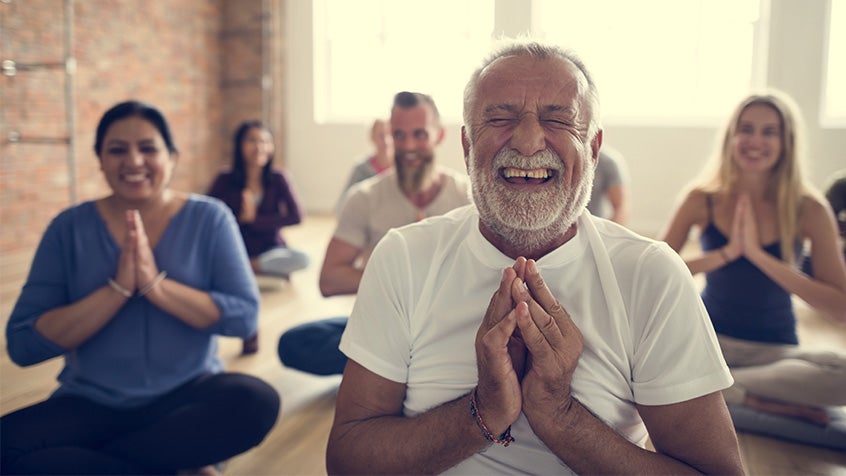It's time to rest and recover
by Patrick O’Loughlin on Tuesday 01 November 2022
3 min read
Why your wellbeing relies on rest and recovery
We treat burn out as normal, but there’s a good reason why over-exertion leads to fatigue: our brains aren’t designed for endless focus. After periods of high cognitive function, our brains need time to rest and recharge. Without this opportunity, the quality of our output suffers no matter the amount invested. Thankfully, the remedy just requires you to sit back and relax.
Rest and relaxation benefits as proven by science
Kicking your feet up as part of a productive schedule sounds like cheating, but there’s plenty of evidence that shows the opposite is true. Research related to workplace psychological recovery found that improving the future wellbeing and performance of employees relied on them restoring lost resources after work. Studies also found that therapy involving meditation and yoga reduced the harmful effects of stress by decreasing blood pressure and heart rate.
It might sound like sorcery, but there’s a reason why R&R gets such positive responses in scientific tests. Resting was found to be so beneficial because it activates the parasympathetic nervous system, giving your sympathetic nervous system – which relates to your flight-or-fight response – a backseat.
Combine the physical and mental benefits of R&R
Resting doesn’t just mean giving your mind a break. If you’re looking for ways to recover both mentally and physically, there are a few simple activities that’ll have you feeling on top of the world in no time.
Indulge in hydrotherapy
There’s a reason why hydrotherapy has been used as a form of medicine for centuries. Whether it be going for a swim or relaxing in a spa or sauna, adding hydrotherapy to your routine can help you benefit from a wide variety of beneficial physical and mental health benefits.
Take yoga classes
A one-off class might make you feel temporary rush of endorphins, but to see the real benefits of yoga it’s important to turn positive routines into habits. Committing to a regular yoga class can create a sense of accountability and make it easier for you to make time for wellness routines.
Go for a walk in nature
Although walking and being in nature both produce positive physical and mental health benefits separately, research has found that combining these activities amplifies the advantages!
Fitting rest into your schedule
If you’re struggling to make time during the week to relax, there are some simple ways you can squeeze some rest in.
Consider R&R with a friend
Finding time for these kinds of activities during the work week might sound like a tough ask, but the low intensity of the activities we touched on above provides the perfect opportunity to relax with a friend. They may need a break from the rat race just as much as you, and as a bonus you’ll get an additional mental health boost from connecting socially.
Make time for microbreaks
Taking microbreaks is something anyone can do. These breaks help you separate yourself from stressful cycles by taking a few minutes to focus on mindfulness.
Microbreaks can be a great grounding exercise, and can include small activities like:
- work on a sudoku or crossword puzzle
- make a cup of tea
- do some stretches
- make lunch for the next day
- make plans with a friend
- walk around the block
- chat with a colleague.
Ready for that break?
If you’re juggling a too much at work – or even just in life in general – carving out quality time for yourself doesn’t just feel great – it helps you achieve more. After all, there’s a reason why Virgin Active so carefully curated spaces to nurture your wellbeing: we know that a healthy dose of R&R goes a long way, no matter your lifestyle.
Related articles
Move
3 min read
Our 2026 ins and outs for wellness
Nourish
3 min read
Food mind games: how stress affects your appetite
Unwind
3 min read
Are you burnt out?
Enjoying our blog?
Sign up to our newsletter to get updates on training, healthy living, news and events.






